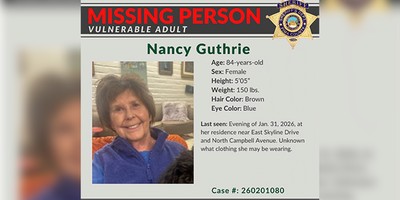This week, the Supreme Court hears Masterpiece Cakeshop v. Colorado Civil Rights Commission.
Jack Phillips, proprietor of Masterpiece Cakeshop, refused to create a wedding cake ordered for a same-sex marriage on grounds that it would force him to create a cake expressing a value opposed to his Christian convictions. The gay men who ordered the cake filed a sexual orientation discrimination claim against him with the Colorado Civil Rights Commission, and the Commission ruled against Phillips.
It was clear that this was not a matter of Phillips refusing to do business with these men because they are gay. He offered to make them any cake they wanted, just not one designed for a same-sex wedding.
Phillips claims his right of free expression under the Constitution's First Amendment.
Some not sympathetic to Phillips' claim argue that making a cake is not artistic expression and has nothing to do with speech protected by the First Amendment.
I'll leave the semantic nuances to the lawyers.
I'd rather consider the spirit of the law and our Constitution.
According to its preamble, the Constitution was established to "secure the blessings of liberty to ourselves and our posterity."
We want a functioning and prosperous society in which everyone can live freely. That's the point.
I am a Christian, and I believe that homosexual behavior is sinful. But as an American, it is no more my business what is happening in my neighbor's home than it is theirs what is happening in mine.
When we move into the public square, our focus needs to be freedom, not forcing me to accept the values of others nor them mine. We need law that allows those of different views and values to live together peacefully, mutually respecting the ideal of human liberty.
Recommended
By this standard, how can we possibly rationalize forcing Phillips to produce a cake against his will, expressing a value anathema to his religion?
How can forcing Phillips to do this be understood in any way as securing for him "the blessings of liberty"?
Those in favor of redefining and legalizing marriage between individuals of the same sex had a great victory in Obergefell v. Hodges, the 2015 Supreme Court decision legalizing same-sex marriage. However, many supporters of that decision distort its spirit. It wasn't about forcing all Americans to accept homosexuality. It was about including this behavior under the umbrella of our guarantees of freedom.
The gay couple that wants to force a Christian man to make a cake for their wedding, against his deepest religious convictions, does not respect the ideal of liberty in which the Obergefell decision was handed down. If they did, they would respect differences and go elsewhere for their cake -- something easily done.
According to Pew Research Center, 71 percent of American adults are Christians. Among them, 39 percent say the Bible is "the word of God and should be taken literally." Fifty percent of Evangelical Christians and 59 percent of Black Protestants say the Bible should be understood as the literal word of God.
How can these Christians, white and black, possibly feel that the U.S. Constitution secures for them the "blessings of liberty" if, on a whim, a gay couple can walk into their establishment and demand a product that violates their religious convictions? Especially, when those demanding this product or service can easily obtain it elsewhere.
No, this is not like refusing to serve blacks in a restaurant. The spirit of that behavior is racism, the antithesis of "securing the blessings of liberty."
At the end of the day, our Constitution is only as good as the goodwill of our citizens. Things will only work when the ideal of "securing the blessings of liberty" is taken seriously and respected by all.

























Join the conversation as a VIP Member